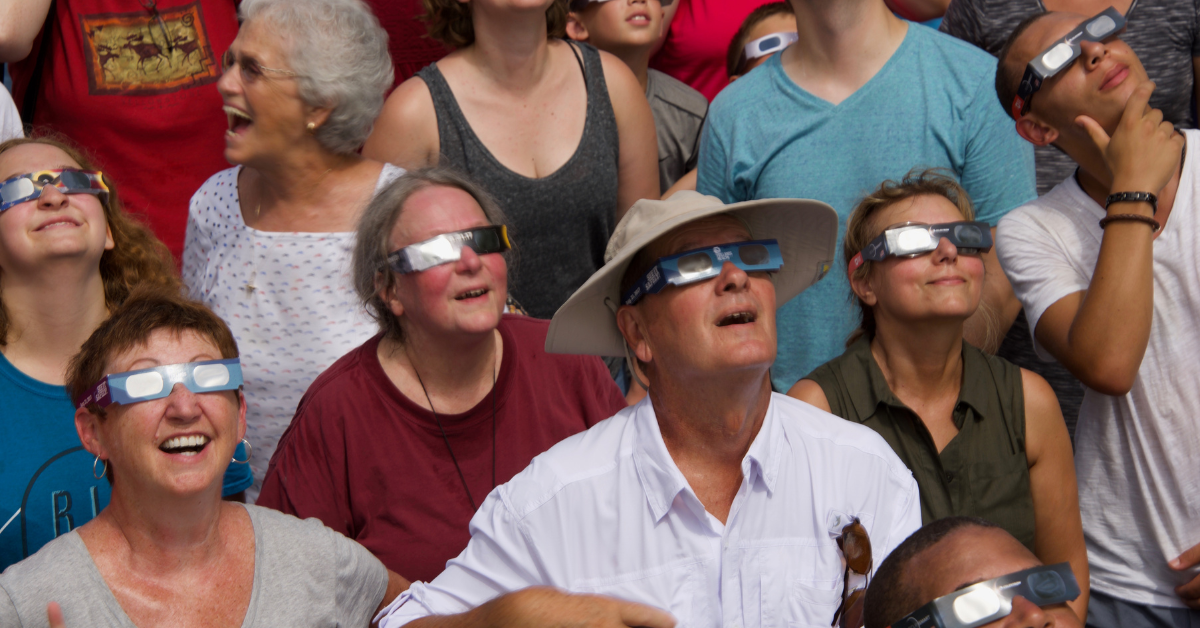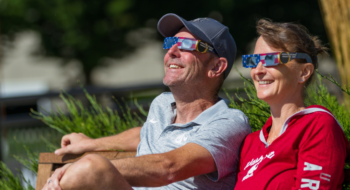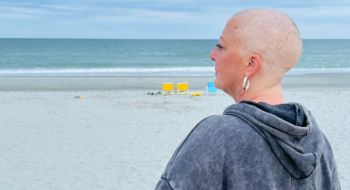On April 8, millions of people across North America will look toward the sky as a solar eclipse sweeps across parts of Mexico, the U.S. and Canada.
Our region of South Carolina will not be in the path of totality during the eclipse, which means the sun won’t be completely covered by the moon at any point during the event. As such, Palmetto State residents watching the eclipse should wear protective eyewear at all times to avoid eye damage.
Failing to heed warnings about the danger of UV rays can have serious consequences. A form of radiation, UV rays can damage the outer layers of the eyes, a condition called photokeratitis, or more seriously, damage the retina.
Photokeratitis
Photokeratitis, commonly known as snow blindness, is akin to a sunburn of the eye. It’s a painful condition caused by too much UV exposure and is normally not noticeable until a few hours after the damage occurs. Photokeratitis can be caused by sun reflecting from sand, water, ice and snow, or through tanning lamps and arc welding. Symptoms include blurry vision, tearing, sensitivity to bright light, seeing halos and twitching eyelids.
The damage from photokeratitis typically goes away on its own in a few days. It can be prevented through the use of proper eyewear, including a welder’s mask or by wearing glasses or goggles that block high amounts of UV light.
Solar Retinopathy
Of greater concern during an eclipse is solar retinopathy, the name given to eye damage caused by directly looking at the sun. It occurs when UV light from the sun burns the retina and destroys the cells that allow us to see.
The process is painless because the retina has no pain receptors, and the damage typically isn’t noticeable until it’s too late.
Solar retinopathy can cause permanent vision loss, depending on the severity of the eye damage. Without the use of appropriate protective eyewear, solar retinopathy can occur when someone looks at even the smallest portion of the sun, even when it doesn’t feel uncomfortable to do so.
Sunglasses, polarizing filters, smoked glass and other forms of non-approved eye protection are not safe to use to look at the sun during an eclipse, even if they appear to dim the sun’s rays.
The only way to safely look at the sun is through the use of special-purpose solar filters, including eclipse glasses and hand-held solar viewers.
Keeping your kids' eyes safe
Young children normally won’t stare at the sun because it’s uncomfortable. However, as sunlight dims during an eclipse, kids may be tempted to look. Closely monitor children to make sure they do not risk damaging their eyes by staring at the sun without their eclipse glasses.
Also, make sure the eclipse glasses fit your child properly. If the eclipse glasses are too large, they will not protect your child’s eyes. Young children may do better with hand-held solar viewers, which can be ordered online.
Learn more about protecting your eyes during the eclipse by going here.





